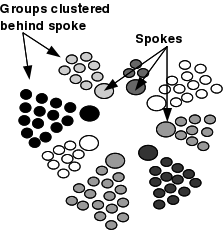 A little late for Christmas, here’s a gift from us to you. We’ve been busy over December and early January working with Stig – our designer of choice – on a range of guides to all aspects of mediation. The first few are on our Resources page already. More to follow in the next week.
A little late for Christmas, here’s a gift from us to you. We’ve been busy over December and early January working with Stig – our designer of choice – on a range of guides to all aspects of mediation. The first few are on our Resources page already. More to follow in the next week.
We hope they provide useful additional support to the mediation training that we offer. As always your comments and feedback would be very much appreciated. Contact us, or better still leave a comment on the blog
In the range are:
- What is mediation
- The Stages of Mediation
- The Principles of Mediation
- A State of Mind for Mediation
- Active Listening in Mediation
- Mediation Competencies
- Mediation Reading List
We’ll also be overhauling our facilitation materials and adding a new Guide to Consensus Decision-Making. If there are other resources you’d find useful and that you think we can provide, tell us so.







